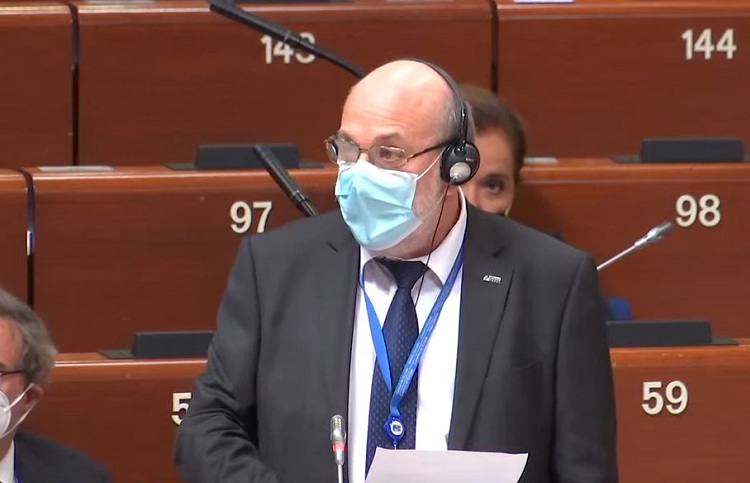The Diplomat
The plenary session of the Parliamentary Assembly of the Council of Europe (PACE) yesterday called for the release of the Catalan leaders prosecuted for the independence process, as well as the reform of the crime of sedition and the withdrawal of the Euro-orders issued against Carles Puigdemont and other leaders fleeing Spain.
The text, entitled Should politicians be prosecuted for statements made in the exercise of their mandate? and presented by the pro-Russian Latvian Socialist MP Boriss Cilevičs, was approved by 70 votes in favor, 28 against and twelve abstentions, hours after the President of the Government, Pedro Sánchez, announced the intention of the Council of Ministers to approve today the pardons to the imprisoned pro-independence leaders.
The report – which is non-binding, has no legal effect and does not include any kind of request or suggestion for action, and which had already been approved three weeks ago by the PACE Legal Affairs and Human Rights Committee – urges Spain to “pardon or release from prison the Catalan politicians convicted for their role in the organization of the unconstitutional referendum of October 2017 and the peaceful mass demonstrations related to it.” It also proposes the reform of “criminal provisions on rebellion and sedition” and the waiver of Euro-orders.
Spanish socialist deputies Antonio Gutiérrez and Sergio Gutiérrez protested during the debate precisely for that last reason, while Pablo Hispán (PP) and Iván Espinosa de los Monteros (Vox) rejected the proposals of the text in favor of the reform of the crime of sedition. Finally, the deputies rejected practically all the amendments proposed by the Spaniards, including those of the PSOE and the PP so that the derogation of the Euro-orders against Carles Puigdemont and his exconsellers fugitives in Belgium would not be requested.
The part of the text that has most stung the Spanish government is the one that links the situation in Spain with that in Turkey. Despite the fact that the rapporteur himself said during the debate that the situation between the two countries is not “equal”, he did insist that in both there are “disproportionate penalties for politicians”.
Spanish Government: “The recommendations are incoherent”
For its part, the Ministry of Foreign Affairs issued a statement in which it expressed its “general reproach” to Cilevičs text and stated that, “although in its conclusions the report endorses the actions of the State and recognizes that the pro-independence politicians acted outside the Constitution and legality”, the Government “considers incoherent the recommendations that urge the Executive to stop pending judicial proceedings and extraditions, something that clashes with respect for the principle of separation of powers”.
The report, it continued, “has evolved a lot in recent weeks in favor of more nuanced positions and respectful of democracy and the functioning of the rule of law in Spain” and several of the recommendations “are part of the policy designed by the Government for some time to find a way that allows the reunion between Catalans and between pro-independence Catalans and the rest of the Spanish people, such as the opening of dialogue, the granting of pardons or the review of the crime of secession”.
However, it warned, “the original vice of treating the cases of Spain and Turkey jointly, and of presuming that the pro-independence Catalan leaders could have been prosecuted for expressing their ideas persists”. “This prejudice, although finally corrected in point 8 of the resolution, continues to appear in different parts of the text and is particularly present in the rapporteur’s memorandum,” he continued. In addition, the Assembly did not approve two amendments correcting the recommendations inviting the Spanish authorities to abandon pending trials and extraditions. “These are recommendations that directly clash with the basic principle of the separation of powers,” it warned.






